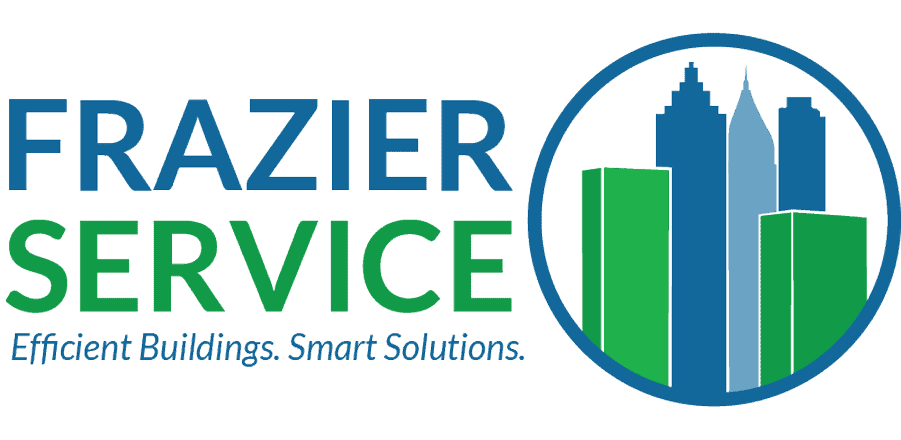Atlanta summer heat is here, and the last thing you want is HVAC system downtime. Here are the ten most common problems with commercial HVAC units and tips for how to repair them or prevent them from happening in the first place.
10 Most Common Problems With HVAC Units
Dirty Filters
When your HVAC systems start acting up, checking your air filter is a good place to start. Regular air filter replacement is one of the most crucial aspects to extending the longevity of your air conditioning unit. Dirty air filters reduce the efficiency of airflow, which causes your unit to work much harder than necessary to circulate air throughout the building. Air filters should be replaced three to four times a year or every quarter.
Pilot or Ignition Problems
A dirty pilot, flame sensor, or burners can result in a pilot outage or delayed burner ignition. Pilot and ignition problems can also result from a gas supply problem or traditional wear and tear from old age, so some parts may need to be replaced. When you notice problems with your unit’s pilot or ignition, it’s best to have your trusted HVAC provider service the unit since it involves handling hazardous elements, such as natural gas and high voltage.
Malfunctioning Thermostat
There are many different thermostat options to choose from for your commercial building, both programmable and non-programmable. When there’s an issue with HVAC units, it’s frequently an issue with the thermostat itself. Before contacting a technician, it’s crucial to review the owner’s manual to ensure you’re using the thermostat correctly. If you’re still having issues, contact your service technician for further diagnosis.
General Wear and Tear
Your heating and air conditioning system relies on many different mechanical components. Throughout the years, parts of the unit break down due to general wear and tear. These components include belts and bearings, which can overheat your unit and restrict airflow. With regular maintenance practices, your HVAC technician can check the system for worn or stretched belts and oil bearings to ensure everything is working as efficiently as it should.
Unusual Noises
Some noises in your HVAC units are normal, but others may be an indication of an internal problem. If your unit’s motor is making a whining or squealing noise, the bearings in your inducer or blower motor may be failing. A motor replacement may be necessary to avoid complete unit failure.
There are many other reasons your HVAC system may be making unusual noises, such as airflow issues or dirty burners. No matter the reason, it’s crucial to act on these noises as soon as you notice them because they could lead to dangerous operating conditions and unit failure. This could put employee safety and your company’s costs at risk.
Blown Fuses or Tripped Breakers
A tripped circuit breaker is one of the most common reasons for an overworking blower. When something is blocking the unit’s airflow, the blower must work harder to compensate for the lack of airflow; dirty air filters often cause this. When air filters haven’t been changed in a while, the blower’s energy consumption increases and can sometimes trip the circuit breaker. Before resetting the circuit breaker, it’s essential to check and replace the air filter so it doesn’t trip again.
If you replace the air filter and the circuit breaker trips again, contact your HVAC technician to determine another potential underlying issue. There are many other reasons for a blower to overwork, such as duct leaks, closed or blocked air registers, or dirty coils.
Dirty Condensers or Evaporator Coils
If you’ve been neglecting routine maintenance of your HVAC systems, there’s a good chance that its cooling capabilities aren’t as efficient as they could be. Throughout a unit’s lifetime, dirt and debris can clog the system’s evaporator and condenser coils, significantly decreasing the unit’s efficiency and shortening its longevity.
Outdoor coils can be cleaned by being hosed off after shutting down the power to the condenser; the condenser’s power can be shut off at the electrical disconnect near the condenser or the electric panel. If indoor evaporator coils aren’t cleaned frequently, they’ll need to be cleaned by a trained HVAC technician.
A Continuously Running Blower
A continuously running blower can cause a lot of strain on the unit and significantly increase your energy bills. Before contacting a service technician, make sure the fan’s switch isn’t in the “on” position. If it’s not, the fan relay may be sticking and causing the blower to run without stopping.
Water Leaks
Heating and air conditioning units produce condensation. Drain pipes are implemented into the unit to ensure water doesn’t enter the system’s other components. If water is leaking from the unit, drain lines may be dirty and need to be cleaned. Other possible leak sources include the collector box, heat exchanger, or evaporator drain pan. When you notice a leak, contact your technician to look at the unit and make sure that water hasn’t entered any other area.
Avoiding Routine Maintenance
Most HVAC problems can be avoided if you schedule routine maintenance quarterly. Regular maintenance enables your technician to look for potential threats to your systems before they become an immediate problem. Through preventative maintenance practices, technicians can change air filters, check for refrigerant leaks, ensure electrical connections are secure, and more.
Frazier Service Company Services the Most Common AC Repairs—and the Most Uncommon
No matter what issues you’re encountering with your HVAC systems, Frazier Service Company is your right-hand man. We partner with businesses across the Atlanta market to help them get the most out of their units, save money, and minimize operational downtime. Connect with us today to schedule preventive maintenance before it becomes an immediate need.






